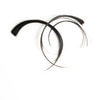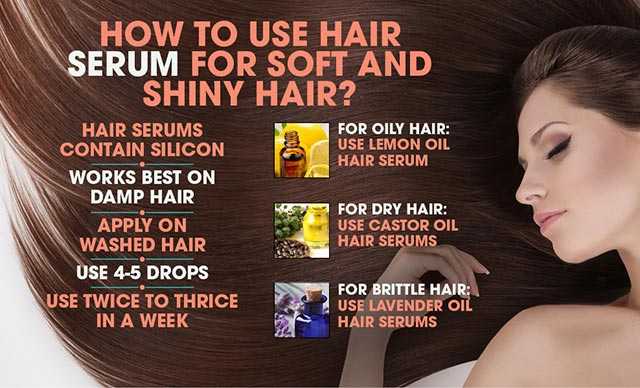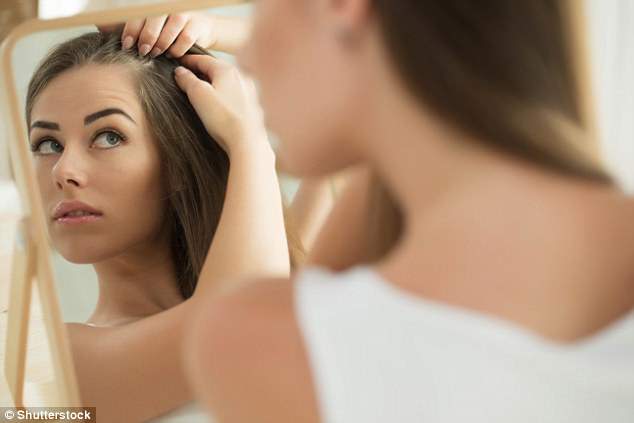|
Summer can bring in several hair woes. From using right serum to brushing in a proper way, experts say there are easy ways to tame your mane.
Arpit Jain, founder and Managing Director of Auraine Botanicals, suggests tips to keep your hair healthy: * Hair serum: Always apply hair serum with finger tips and do not apply hair serum too close to the scalp to avoid oily look as applying serum with finger tips will give better look to your hair. * Hair wash: Wash your hair twice or thrice a week to retain essential oils. Ensure that you wash your hair with warm water (neither too hot and nor too cold) to avoid frizz and damaged hair. * Brushing: Brush your hair in balancing manner so that too much of brushing does not distribute oil all over your hair. ADVERTISING * Dry shampoo: As summers have set in, dry shampoo is going to be your everyday saviour if you don't have time to wash your hair regularly then dry shampoo will help in hair to not look greasy and matte. * Tie your hair: To avoid extra stress to your hair, tie your hair when you sleep and when you go out in the sun or dust. This prevents your hair from the further damage. -*- Vibhoar, Director of NEU Salonz, busts some myths that can help you to get healthy hair this summer. * Cutting your hair regularly makes it grow faster: It is a myth! Hair grows from the root, and the body cannot detect when it has been cut (shaving, plucking or tweezing is a different story). Cutting the hair removes split ends which help the hair stay more aligned and look healthier. Perceptually, if you get your hair cut regularly you will probably be more aware of how quickly it grows. * Be rough: You really have to be rough to get the lather going. Remember, your hair is delicate when it is wet, so be gentle. Massaging your shampoo in with soft, circular movements will give you a few minutes of bliss. * Dying your hair will cause damage: Bleaching hair can dry it out and damage it however there are plenty of nourishing treatments to help replenish hair. Invest in good quality, hydrating shampoos and conditioners and use a mask once a week to keep your hair in the best condition possible. * Stress is making your hair fall out: It is definitely true that certain traumatic events have been linked to hair loss. Things, like suffering a major illness, gaining weight, career struggles or a death of loved one can trigger hair loss. However, the types of hair loss associated with high stress are typically telogen effluvium, a "resting phase" in which hair follicles stop growing, and alopecia areata, patchy hair loss. Both of which are temporary, reversible, and easily treated with topical or oral solutions to jumpstart the recovery process. --IANS This article first appeared on socialnews.xyz
0 Comments
Months spent on a sunny beach will probably lighten your hair, but it will damage it. Which is why you need to keep that hat on! REMEMBER that amazing spray that worked magic on your hair. Unfortunately “sun-kissed” hair isn’t exactly a good thing. BACK in the ’80s and ’90s, many Aussie girls forked out their hard-earned cash on a bottle of SunIn, soaked their hair, then lay out in the sun, hoping for lighter tresses.
But it turns out we probably didn’t need the extra help that spray provided. Spending all summer outdoors will lighten your hair even if you don’t put anything extra in it. Trichologist Anthony Pearce says it’s all down to ultraviolet radiation. The colour pigment in our hair shafts is oxidised by exposure to ultraviolet radiation, that according to Pearce, is “the same chemical process as having the hair bleached”. This might sound like welcome news for those who spend hundreds of dollars (and hundreds of hours in the hairdresser’s chair) attempting to lighten their hair. But be warned, “sun-kissed” hair isn’t exactly a good thing. “The sun can ‘bleach’ hair blonde but in doing so degrades the hair as well,” Pearce, founder of Anthony Pearce Trichology, explains. A lighter hair colour as a result of time spent in the sun equals a permanently weakened hair shaft. Hello split ends, dryness and a whole lot of irreversible damage. The solution? For starters, wear a hat when you’re outdoors and opt for hair products that provide protection from ultraviolet radiation — they’re like sunscreen for your hair. “I’m a big believer in protecting your hair against UV rays the same as we do for our skin. It is especially important for weak or colour-treated hair,” explains Lisa Farrall, hair expert for Fudge Professional. “It is also important to think of your scalp, especially your part. I find the best trick is to use a high SPF lip balm on your scalp to avoid it burning, it’s easy to apply with no grease and it will stop you from having a flaky scalp.” If you are looking to speed up the hair lightening process, there are some great options out there that don’t involve sun damage. For anyone who grew up in the late nineties or early noughties and abused hair lightening product Sun In like I did (I still shudder thinking about the Coke-coloured patches on my head), you’ll be pleased to know the technologies and formulas have improved dramatically. The key? Three-time Australian Hairdresser of the Year and Co-Creative Director of ELEVEN Australia, Joey Scandizzo, recommends simply asking for subtle highlights. “Most hairdressers understand what ‘sun-kissed’ hair is — a great way to describe it is to say you would like subtle variation through the front or the ends which are generally the places the sun hits,” explains Scandizzo. “Sun-kissed means you want to go only one or two shades lighter, nothing too drastic.” If you’re religious about keeping your hair out of the sun but still find your hair has lightened by the time March rolls around, there are a couple of reasons for that. “Salt water will also lighten hair in it’s dual effects with ultraviolet light. Salt water can add to hair damage as it can swell and dry hair shafts; making them more porous and prone to breakage,” explains Pearce. Oh, and that chlorinated pool you’ve been swimming in? It’s not your hair’s friend either. “As an alkaline, chlorine is potentially the most damaging to hair. Hair should be double shampooed immediately after swimming. Depending upon what chemicals are added to the pool water, Chlorine pools can gradually cause a green/blue discolouration to hair,” says Pearce. Edwina Carr Barraclough is a Sydney-based lifestyle editor and social media and content strategist. You can see more from her on Instagram or Facebook. This article first appeared on news.com.au Swimming is a fun activity during summer. Who does not like to play with the cool water to beat the effect of the scorching sun? But this fun comes with some challenges to your natural self. Your skin and mostly your hair tends to get damaged by the chemicals used in swimming pools. However, there are simple steps you can take to protect your hair and avoid the possible damages.
What does chlorine do to your hair? Chlorine added in water pools is used for a variety of purposes. It is mostly used as an antibacterial agent to destroy bacteria and germs in the pool and keep the water safe for swimmers before it needs be replaced. Chlorine is composed of elements that make it unhealthy for hair. It makes the hair shaft dry, that in-turn, will make the hair strand coarse and fragile. Chlorine in the pool seizes the sebum from the hair, leading the hair strand to lose shine, undergo breakage, and also result in split ends. How to get chlorine out of hair? Here are some simple, easy to follow tricks that can help you protect your hair from damage by chlorine water: 1. Swim Outdoors Swimming in an outdoor pool allow gases from the chlorinated water to escape into the air. This will leave less room for contamination of your hair and skin as well. These types of pools are also better for your eyes, nose, throat and lungs. If it’s needed to swim indoors, look for pools that are well-ventilated. 2. Shower before you swim Wet hair tends to absorb less than dry hair. So taking a shower before you step into the pool decreases the possibility of your hair from absorbing the water molecules from the pool. Same case works for your skin as well. This is the scientific reason behind the necessity to take shower before you enter the pool. 3. Use oil and hair conditioner Oiling or applying hair conditioner to hair prior to swimming is highly suggested by hair experts. This creates a protective layer between your hair follicles and the chlorinated water in the pool. It also nourishes the hair strands and make them smooth and shiny. However, be sure to use a swim cap if you’re using oil, else the oil is likely to attract sun damage. 4. Wear latex or swim caps If you tuck your hair entirely into a swim cap and then jump into the swimming pool, you can safeguard your hair against any kind of damage from chemicals present in the pool. The cap will keep your hair dry. It is one smart way to maintain the health of your hair and avoid it from any possible harms. 5. Wash after you swim A mild and sulfate-free shampoo after swim can help you get rid of all those chemicals hanging around the surface. Be mindful to give your hair a good soak in fresh water as a quick wash can result some chlorine molecules left in the hair follicles. 6. Comb your hair Using a wide-toothed comb helps avoid frizzy hair and is an easy and effective way to keep your hair tangle-free. It relaxes the mess and also reduces the hair breakage. Avoid using a hair brush immediately after your swimming routine. A wide tooth comb detangles your hair without added stress and possible deterioration. You can also follow these home remedies to safeguard your hair from possible chlorine threats. 7. Olive Oil Massage Olive oil makes an effective hair coating that protects the hair from many type of damages – including effects of chlorine. The oil strengthens the sebum content produced by the scalp, therefore enhancing the hair follicles. Olive oil nourishes both the hair and the scalp and makes it naturally beautiful. Coconut oil can be a great alternative. Coconut oil helps to lock in moisture and strengthen the hair shaft. 8. Apple Cider Wash Apple cider vinegar can be used as a clarifying rinse after every swim session. Using ACV will help get off all those chemicals attached to your hair strands and associated threats. The positive aspect of using this natural remedy for after-swim effects on hair is that it helps get rid of chlorine along with other damaging elements found in pools like copper, salt, and other impurities. 9. Treatment with Tomato puree Tomatoes are one such nourishing agents that prevent the loss of moisture due to exposure to chlorinated water in the swimming pool. It also greatly reduces the harm that is caused by chlorine to your hair. You can cut some tomatoes and grind them to get a thick consistent puree. Then apply this paste on your clean hair and leave it on for 20 to 30 minutes before shampoo. (Tomato juice works, too. Lean over the kitchen sink and pour it over your head again and again. The tomato acids worked to remove the copper minerals (blue/green) but can be very drying on fragile blonde long hair. Catsup works, too.) 10. Baking Soda cure Baking soda is another effective home cure for tackling frizzy hair problem due to chlorine water. It cuts out chlorine and other chemicals muddled in the hair follicles. It clears your scalp and makes your hair clean by removing any unnecessary build-up. Add water to some baking soda to make a consistent paste. Apply this paste to your hair and scalp and let it sit for 20 to 30 seconds. Then wash it off with plain water and regular shampoo. Despite being an antibacterial agent, chlorine is a not a recommended element for your hair. It can cause hair discoloration, brittle and frizzy hair, loss of luster and volume along with dry and itchy scalp. So, if you really want to avoid the resulting consequences with even a single dip in chlorinated water, follow these easy and reliable tips and don’t forget to share your experience. This article first appeared on Top10NaturalTips Hair serums have become an important ingredient in our arsenal of hair products and for very credible reasons. While we know that hair serums are extremely effective in tackling dry and fizzy hair, did you know that there are specific hair serums suited for different kind of hair, you can use them to prevent hair breakage and you can also make hair serums at home that can be highly beneficial for your hair. Read on as we tell you how to pick the best serums for your hair and how you can make it the best multi-purpose product for your hair. How to pick the right hair serum for your hair? There are tonnes of hair serums available in the market. Hair serums add shine, reduces frizz and dryness and works best for long and medium hair length. Hair serums are basically silicone-based product that coats the surface of your hair and gives your hair softness and shine and prevents it from getting tangled. Read the composition of the serum carefully While it is true that silicon is the main ingredient in most hair serums, you need to pay attention to what are the other ingredients in your frizz fighter too. For instance if you have very dry and frizzy hair, you should opt for a hair serum that is infused with oils like castor, rosewood and marula that will provide intense hydration to your locks while adding that lustre and sheen. Serums for different hair types
There are serums suited for specific hair types and purposes. Here’s your guideline to picking the right hair serum for your strands. Serums suited for split-end rid hair Split ends make our manes prone to breakage and frayed. If you have too many split ends, hair serum is a must to improve the appearance of your hair. But, make sure you pick hair serums that contain keratin as keratin is known to repair annoying split ends and prevent strands from splitting. Serums suited to protect against heat and pollution We live in hot and humid climates, and If you need to go out in the sun on regular basis, you need to take extra care of your strands. Pick hair serums that contain lavender and jojoba oils as these oils prime and nourish your hair along with adding the sheen. Lavender oil smoothens and detangles your hair and also protects against heat. Such serums are also extremely lightweight and absorbs into the hair quickly. Serums for chronically dry hair Excessively dry hair needs extra care and nutrition. Good news is that now there are serums available that can be applied overnight and kept that can revitalize your hair while you get your beauty sleep. Make sure thought that these serums are cream based and not oil based so that that they don’t weigh down your hair instead of moisturizing it. You can apply overnight serums to both damp and dry hair and wake up with nourished and shiny hair. Serums for thick and textured hair If you have thick and textured tresses you are going to need a hard working serum that will give your hair that extra hydration. Pick up serums infused with argan and Moroccan oils to tame your tresses and give it a healthy shine. Serums for curly hair Curls automatically tend to get more frizzy and difficult to manage. The best serums for wavy and curly hair are those that have intense moisturizing properties. You must have heard a hundred times that serums can work wonders on dull and lifeless tresses. Curly hair however needs a tad bit more attention. So to keep those curls bouncy and glossy and bring them back to life, pick serums laden with hydrating oils like jojoba, argan, sweet almond and marula. Serums for coloured hair For those of you who have coloured or chemically treated hair, there are lightweight cream based hair serums available in the market which besides silicone contain ingredients like jojoba, argan and coconut oil along with green tea extracts . These work perfectly for coloured and chemically processed hair. Use and Purpose of Serum The primary purpose of hair serum is to make your locks look shinier, less knotted and healthier. This happens as the serum absorbs and reflects light, it makes you hair look glossier, while also making a protective coat on the hair thus protecting your hair from dust, pollutants and ultra violet rays. Most people use hair serum to revive damaged and brittle hair. Serum restores shine in dull and dry hair and prevents hair from getting tangled up. While a lot of us see serums as that instant magical product that works as a pick-me-up for our tresses, it needs to be understood that serums serve multiple purposes and come in two distinct varieties. While our regular daily serum is best applied on damp or towel-dried hair, if you are using it specifically for styling purposes serum needs to be applied on dry hair. We give you a low-down on the different kinds of hair serums and the steps to use them perfectly. Always wash your hair prior to applying serum The rule of thumb is to apply serum only on shampooed hair. Applying serum on unwashed hair will only weigh down the strands, make them appear thinner and oilier and attract more dust and grime znd even cause dandruff. Understand that serum is not just a styling product, it is a vitalizer and provides nourishment to your hair. But that can only happen when the serum is able to reach the roots and strands. Unwashed hair prevents that from happening. Do not use excessive amounts of serum Serums are primarily a concoction of water, essential oils and revitalizing chemicals. Applying too much of hit can make your hair greasy and unnecessarily heavily which basically cuts down the volume of your hair. For medium length hair, use 1-2 drops of serum and for longer hair, use 3-4 drops of serum. How to use serum on wet hair Squirt out a teardrop amount of serum on your palm. Now, gently blot the hair serum between your palms and massage it onto the partings and ends of the hair. Experts say serums work best on damp hair, remember damp not dripping wet. Flip your hair forwards and start applying hair serum in the vertical direction going from tips to roots. Make sure to massage the tips well to prevent occurrence of split ends. Now flip the hair back. Squirt two to three more drops of hair serum on your palms and now massage it onto your scalp. Let the serum settle down for a minute and then go on to dry or style your hair. The serum will act as a heat protectant, prevent the tangles that often crop up in wet hair and allow you to style your hair more efficiently. Also remember that blow drying your hair is absolutely essential when you apply as wet, serum treated scalp can cause dust and grime to stick to the scalp and that cannot mean good news. How to use serum on dry hair A lot of hair expert also use hair serum to help a hairstyle hold better as hair serums are a healthy alternative to hair mousse which tend to dry out the hair and weaken them. Take 3-4 drops of serum on the palm of your hand. Now start applying serum to the back of your hair first and then come to the front and midsection of the hair so that too much serum does not ruin your hairstyle. If after application you feel that your tresses are still looking dull and lifeless, take a drop or two more of serum and apply it to the sides and front of your hair. Your hair will radiate shine and have a healthy appearance to them. Be very very careful not to go overboard with serum too, as that can lead to your tresses look limp rather than lustrous. In hair serums the right product and quality matters When it comes to picking up the right serum, you may need to do a little trial and error before you figure out a serum that works perfectly on your hair. Keep the above mentioned composition guidelines in mind when choosing the right serum for your hair type. Always opt for a good brand when it comes to serums even if they are a little expensive to get the desired results for your hair. Once you have figured out which hair serum works best for you, consider investing in complementary hair products like shampoo and conditioner too to derive a hair care routine that works best for your hair. Home-made serums If you are having problems identifying and finding the best hair serum for your hair type, you will be happy to know that you can make some very effective hair serums at home too. Lemon and coconut oil serum for oily hair Oils like lemon oil, coconut oil, peppermint oil and jojoba oil are lighter and are a perfect hair serum base for those with oily hair. These oils help to curb the production of the sebaceous gland which produces sebum which in turn cause the excessive oiliness and greasiness in the hair.
Castor oil hair serum for dry hair Castor oil is one of the richest hair oils, which also makes it one of the finest moisturizing agents for your scalp and hair. Dry hair often leads to split ends which eventually result in breaking of strands and hair loss. This home made serum will help you tackle dry hair and restore moisture and sheen back to your hair.
Aloe vera gel and lavender oil serum for brittle hair Lavender oil is a miracle remedy for brittle hair. The concoction of lavender oil and aloe vera gel not only helps to restore health back in damaged hair but also promotes hair growth.
Avocado oil hair serum for shiny hair Like your mane shiny and silky? We give you the perfect formulae.
The concentration will work like magic on your tresses and is lightweight enough to be used during daytime as well. This first appeared on Femina 5/12/2018 Eat Your Way to a Healthy Head of HairScalp expert reveals the secrets to regaining fuller locks - and it all starts with six essential nutrients
They say we are what we eat. But not eating enough nutrients can lead to dry scalp, brittle locks or even hair loss. Australian trichologist Simone Lee said the secret to growing healthy hair all starts with your diet. She revealed the six essential nutrients - proteins, carbohydrates, fats, vitamins, minerals and water - to help strengthen hair tissue and promote growth. Here, she shared the foods that contain the right nutrients for healthy hair. Nutrition is the interrelation between organisms in the body and nutrients that have been transformed from digested food and ingested by the body's organisms,' Ms Lee said. 'A failing in the conversion and absorption of nutrients from food will affect the cellular activity within the body and ultimately can result in the occurrence of disease, unhealthy hair and even hair loss. 'Consuming appropriate amounts of the six essential nutrients is the key to growing healthy Hair.' PROTEINS Hair is made up of protein so if you are not eating enough protein, this would subsequently cause hair loss. There are four key amino acids necessary to produce hair keratin - cysteine, lysine, arginine and methionine. 'Of these amino acids lysine and methionine are classified as essential, meaning they are not formed by the body and must be made available through our diets,' she said. She explained you can also top up your intake of protein by eating lean meats such as chicken, fish, beef, pork or lamb - or dairy products such as eggs, milk, cheese and yoghurt. 'Consuming combinations of vegetables that are high in proteins like peas, beans and soya beans are a great way to boost protein levels within the body,' she said. CARBOHYDRATES 'Carbohydrates are essential for a well-balanced diet. When the carbon system unites with oxygen in the blood stream, immediate calories used for energy by the body are produced,' Ms Lee said.
'This energy helps divide the cells in the hair matrix and germinating layers of the skin. Carbohydrates help regulate protein and fat metabolism.' Simple carbs or sugars can be found in natural foods including fruits, honey, milk and vegetables. 'Some great sources of complex carbohydrates are beans, lentils, peas, whole grains and starchy potatoes,' she said. FATS 'Maintaining body functions is assisted by a healthy intake of fats,' she said. 'Vitamins must have fat to dissolve and nourish the body. and polyunsaturated fats help keep hair shiny. 'Fatty acids essential such as linoleic (Omega 6) and Linolenic acid assist in inadequate oil production from the sebaceous gland. Omega 3 can be activated in the body through consumption of linseed and marine oils from salmon, tuna and sardines. Deficiencies in magnesium, zinc and vitamin b6 may result in inhibited Omega 3 and Omega 6 pathways within the body which can cause hair loss. VITAMINS Fresh fruit, green vegetables and grains are a great source of water soluble vitamins. Vitamins connected to maintaining healthy hair and scalp are: Vitamin A - helps prevent dry hair, and maintaining a healthy skin. Found in carrots, liver and green vegetables. Vitamin B (thiamine) - assists in prevention of dandruff and red skin. Found in liver kidneys and green vegetables. Vitamin B (pantothenic acid) - Helps maintain hair colour and possibly prevent early greying. Found in mushrooms and liver. Vitamin B (folic acid) - Required for cell multiplication. Found in liver, kidneys and green vegetables. Biotin - Water soluble B vitamin, lack of biotin can cause brittle hair. Found in wholegrains, liver and yolk. Vitamin C - is needed for maintaining skin health. Found in citrus fruits. Vitamin D - assists in the absorption of calcium and food digestion. Found in eggs, fish and milk. Vitamin E - aids in hair growth, blood circulation and may help premature ageing of skin. Found in eggs, green vegetables and bread. Vitamin K - assists in the prevention of blood clotting, aids blood circulation. Found in broccoli, Brussels sprouts and cabbage. MINERALS Minerals are chemicals the body requires in order to work properly. They are equally as essential as vitamins and also can be obtained from food. Minerals connected to maintaining healthy hair and scalp are: Cobalt deficiency leads to scaly dry skin. Found in broccoli and fruit. Copper deficiency may cause hair loss and greying. Found in liver, cereals and nuts. Iodine deficiency may cause thinning of hair and dry hair. Found in shellfish, kelp and other seafood. Iron helps prevent brittle hair and maintain a healthy hair growth cycle. Found in liver, egg yolk and puha. Zinc deficiency may lead to hair loss, dry and oily skin. Found in oysters, wheatgerm and bran. WATER 'An appropriate consumption of water is essential for life. Two thirds of our skin tissues are made up of water,' she said. 'The human body loses approximately two litres of body fluids in a day, and is replaced through consumption of water and other liquids.' By going through litres of mineral water every day, it will hydrate your hair and prevent dry scalps. This article first appeared on DailyMail |
Hair by BrianMy name is Brian and I help people confidently take on the world. CategoriesAll Advice Announcement Awards Balayage Barbering Beach Waves Beauty News Book Now Brazilian Treatment Clients Cool Facts COVID 19 Health COVID 19 Update Curlies EGift Card Films Follically Challenged Gossip Grooming Hair Care Haircolor Haircut Hair Facts Hair History Hair Loss Hair Styling Hair Tips Hair Tools Health Health And Safety Healthy Hair Highlights Holidays Humor Mens Hair Men's Long Hair Newsletter Ombre Policies Procedures Press Release Previous Blog Privacy Policy Product Knowledge Product Reviews Promotions Read Your Labels Recommendations Reviews Scalp Health Science Services Smoothing Treatments Social Media Summer Hair Tips Textured Hair Thinning Hair Travel Tips Trending Wellness Womens Hair Archives
January 2025
|
|
Hey...
Your Mom Called! Book today! |
Sunday: 11am-5pm
Monday: 11am-6pm Tuesday: 10am - 6pm Wednesday: 10am - 6pm Thursday: By Appointment Friday: By Appointment Saturday: By Appointment |







 RSS Feed
RSS Feed